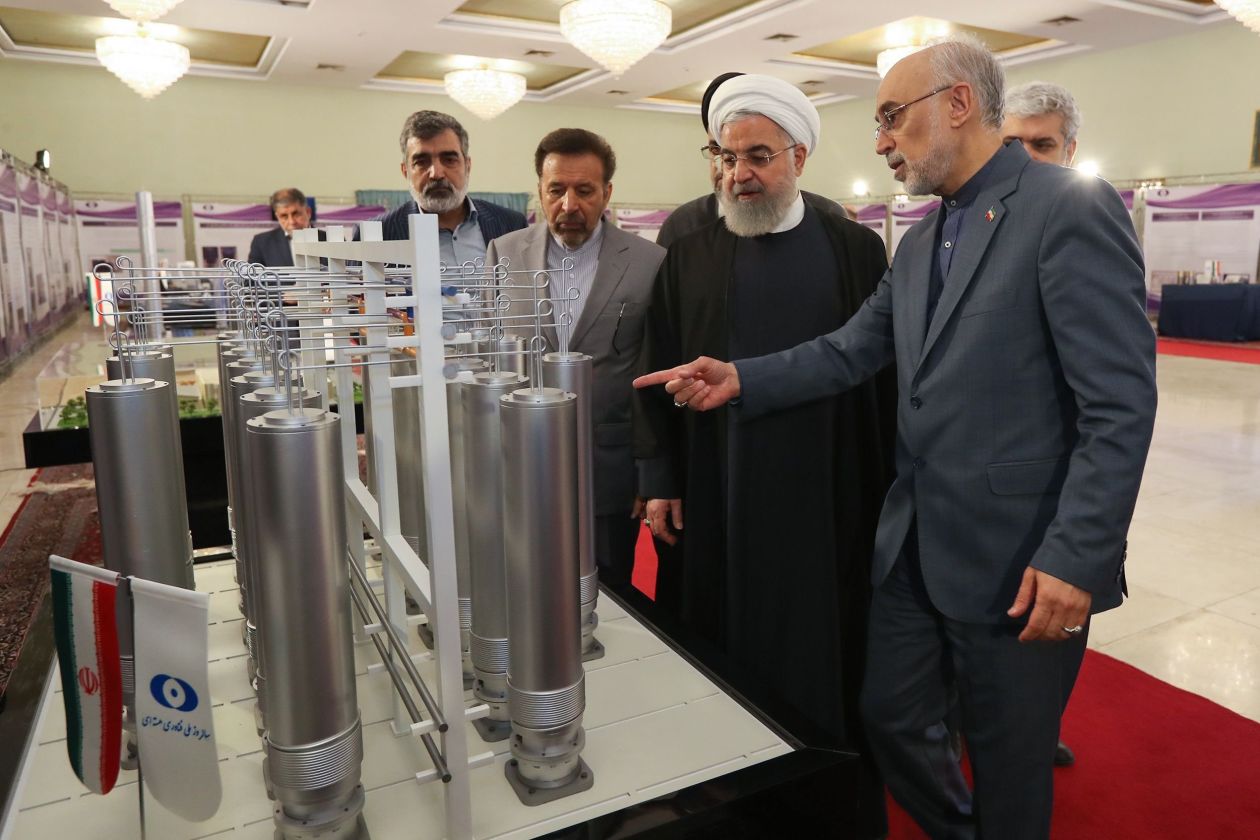Iran Puts Trump to the Test

Photo Credit: Iranian Presidency Office Handout/EPA/Shutterstock
President Trump’s Iran policy has so far been effective at keeping the regime off balance. He especially distinguished himself by defying conventional opinion and withdrawing from the Joint Comprehensive Plan of Action, the 2015 nuclear agreement with Iran, and imposing painful economic sanctions, which have undercut Tehran’s finances and exacerbated internal pressures.
But American reliance on sanctions, which Iran has weathered in the past, signals an unwillingness for confrontation. Tehran is pushing back. First, it announced it would stop abiding by certain JCPOA restrictions on its nuclear program. Second, despite Mr. Trump’s warnings and swift deployment of U.S. assets to the region, Iran-backed forces sabotaged oil tankers off the Emirati coast and a Saudi pipeline, and launched a rocket that landed near the U.S. Embassy in Baghdad.
Third, Iran followed up with defiant rhetoric. Mr. Trump warned, “If Iran wants to fight, that will be the end of Iran”—but eight days later he played down any chance of conflict, clarifying that “we’re not looking for regime change.” Tehran acted as if it had succeeded in calling the president’s bluff. “The Americans are unwilling and unable to carry out military action against us,” a military aide to Supreme Leader Ali Khamenei asserted.
Deterrence requires Mr. Trump to maintain U.S. credibility. Otherwise, Iran will intensify its aggressive behavior and ratchet up its nuclear effort, making conflict likelier. Most immediately, the U.S. must retaliate with precise military action against critical Iranian assets.
More fundamentally, the Trump administration should make “regime collapse” its overarching strategic objective. That was the original goal of containment against the Soviet Union, and it would bring much-needed coherence to U.S. policy against Iran. It does not entail an Iraq-style war of “regime change,” but involves efforts to roll back Iran’s regional expansion.
At a minimum this means increasing support for regional allies on the front lines, including Israel, Jordan and the Syrian Kurds. For Israel, that should include front-loading the remaining nine years of America’s defense-assistance agreement, giving the Jewish state better tools in advance of potential major conflict in Lebanon, Syria and Iran. It could include home-porting two missile-defense destroyers in Haifa (provided Israel addresses U.S. concerns about China’s role there). A more robust policy would also involve enforcing United Nations Security Council resolutions by interdicting Iranian missiles and drones headed to Yemen, and intercepting weapons headed for Hezbollah and Iranian proxies in Syria.
Mr. Trump was dealt a very bad hand on Iran. President Obama undermined U.S. credibility by failing to uphold his Syria red line and agreeing to the JCPOA. Yet Mr. Trump has managed to put Tehran on the defensive. Now his policy is being tested. How he responds will have a significant impact on U.S. interests in the Middle East and beyond.
Mr. Makovsky, a Pentagon official in the George W. Bush administration, is president of the Jewish Institute for National Security of America.
Originally appeared in The Wall Street Journal